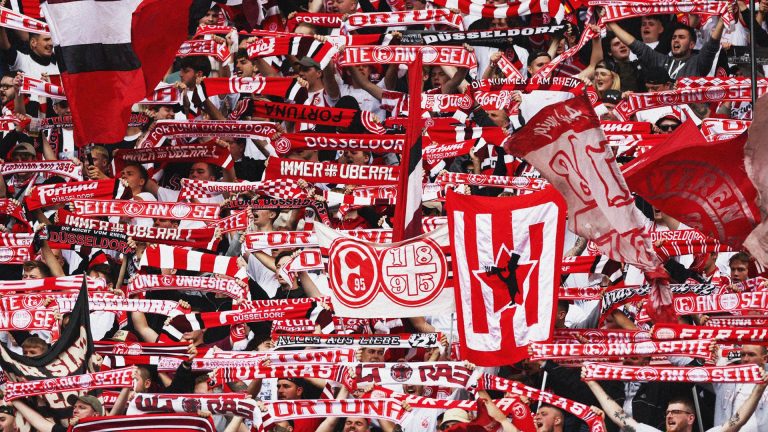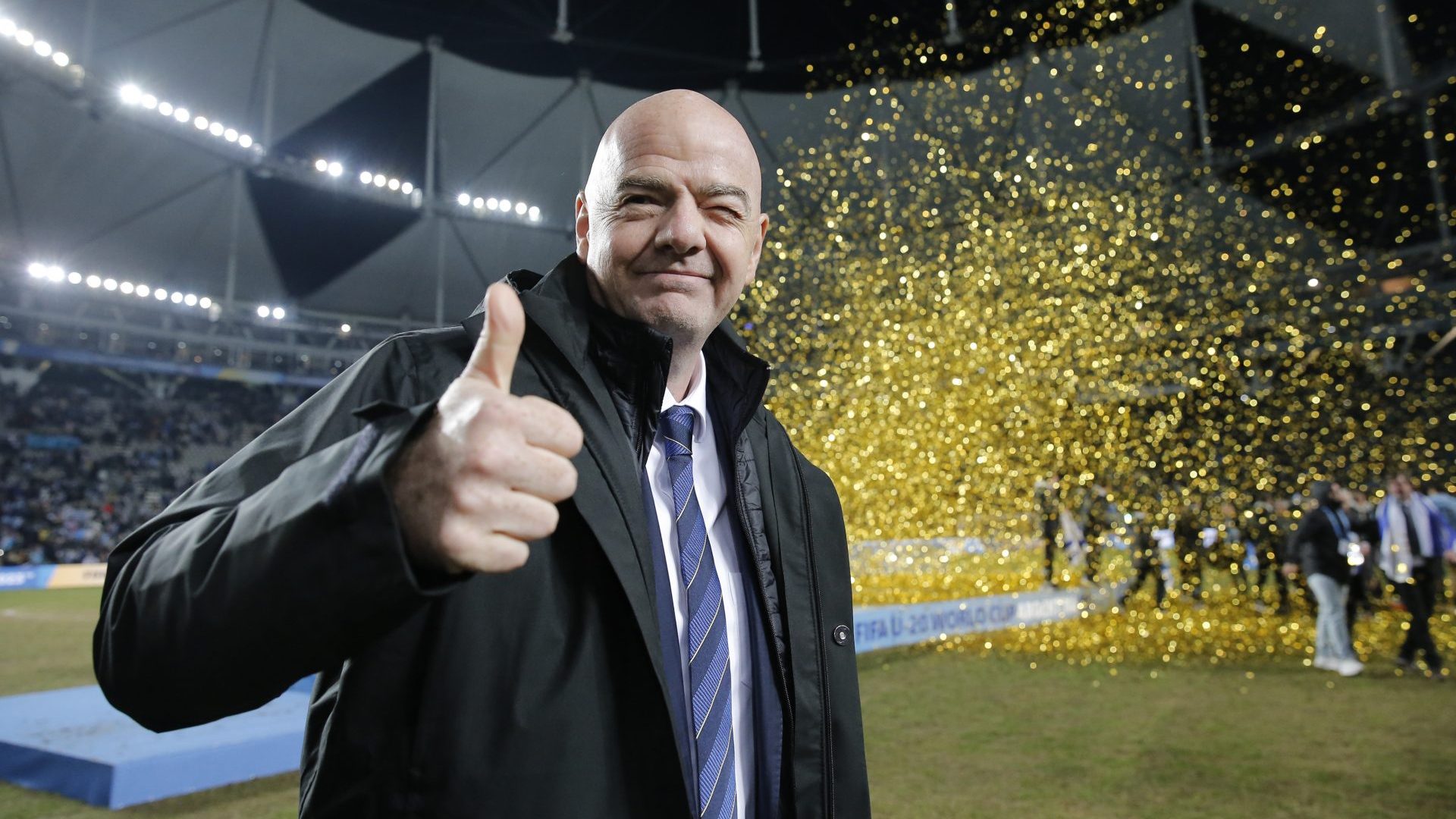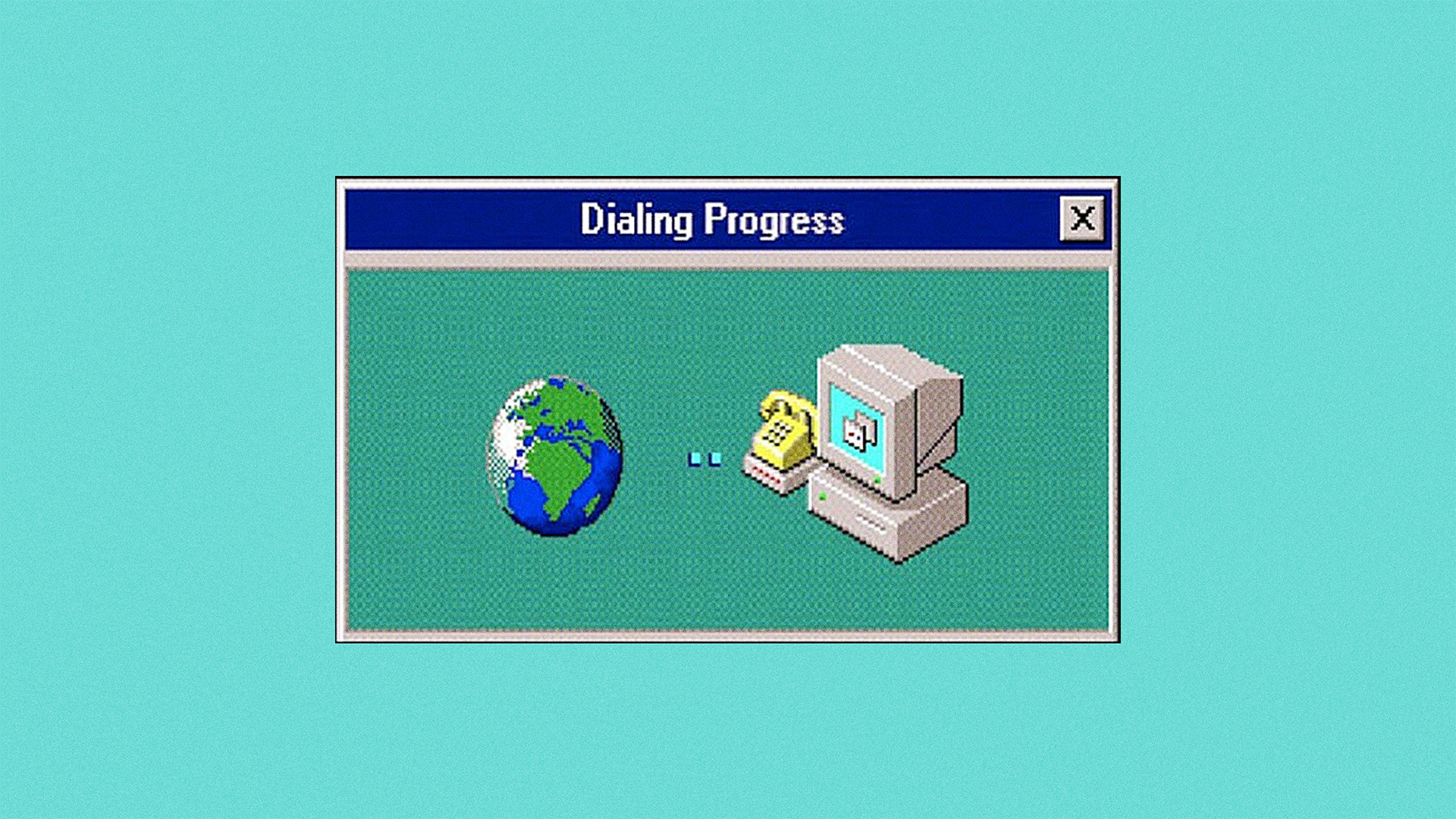When the victor of this year’s Club World Cup football championship is inscribed on its gold vermeil trophy on July 13, it will not be the first name on that piece of silverware.
They should be. Because this trophy has been commissioned especially for this tournament in its new format. But one man already has his name etched onto the trophy. FIFA president Gianni Infantino. Twice.
Infantino, the Swiss-Italian who has been president of FIFA since 2016, has sought to make this unnecessary, unloved tournament about FIFA in general and about him in particular. There’s Infantino on social media, unveiling his own golden Panini sticker for the tournament’s official album. “Just a bit of fun,” a spokesperson clarified. There’s Infantino hanging out with a football influencer called IShowSpeed.
And there’s Infantino standing by, gurning in the Oval Office as his close friend and ally Donald Trump uses a meeting with the Juventus squad to muse inexplicably on Iran, trans women in football and, apropos of largely nothing, the body count in the American civil war. Infantino excitedly presented the president with a shirt with “TRUMP 47” on the back. Juventus wing-back and US international Timothy Weah, conversely, later explained: “They told us that we have to go and I had no choice but to go… When he started talking about the politics with Iran and everything, it’s kind of like… I just want to play football, man.”
It’s Infantino’s Club World Cup and we’re just watching it. Except, of course, we’re not. How did we get here, to the point where we now seem to have a king of world football? And what does it say about the hubris of Infantino, the man at the top?
Gianni Infantino was born in Brig-Glis, in the Swiss Alps, in 1970, with health complications (a blood transfusion in infancy saved his life). He grew up supporting the Milan giants Internazionale, idolising the likes of Il Genio Evaristo Beccalossi and the man known as Spillo (“Needle”), the slender Alessandro Altobelli.
Never much of a player, he hit the heights of FC Brig-Glis’s third team, but as his cousin Nellen told The Athletic earlier this year: “He started to organise, look for sponsorship and look for shirts… he liked to organise”.
After graduating in law from the University of Fribourg, Infantino moved immediately into sports governance; first as legal counsel and general secretary of the International Centre for Sports Studies in Neuchatel, then, at the age of 30, at UEFA, European football’s governing body, where he enjoyed a meteoric rise. When Sepp Blatter’s reign at FIFA came to an abrupt end 2015 and his heir apparent, UEFA president Michel Platini, found himself banned from all football activity for eight years over alleged suspect payments, Infantino had very quietly, and very cleverly, put himself in pole position for the top job, not least by telling member nations: “The money of FIFA is your money.”
Which takes us to the Club World Cup. While this is the first such tournament in this format, an attempt to decide a club world champion is not new. Its predecessor, the Intercontinental Cup, a play-off between the champions of Europe and South America, dates back to 1960. From 2000 onwards, it was an eight-team competition featuring the champions of each competition (Manchester United pulled out of the 2000 FA Cup to take part, in the belief it would help England’s bid to host the 2006 World Cup.)
But once Infantino became FIFA president he was single-minded in expanding it, for one simple reason: he wanted it to have a slice of the club game. FIFA has always envied the monopoly that domestic leagues and continental confederations have had over club tournaments such as Europe’s UEFA Champions League.
In the 2023-226 cycle, FIFA projects its total income will amount to $11bn, and the majority of that comes from the World Cup. A divisive plan to make the global tournament every two years, rather than four, was proposed in 2021, but met with opposition from national and continental associations. In response, Infantino simply increased the number of games by upping the number of teams from 32 to 48 next year. An increase to 64 teams for the World Cup after that has already been suggested.
Suggested Reading

The football club letting fans in for free
And so we have the 2025 FIFA Club World Cup: a tournament nobody asked for or wanted, taking place in a country – the US – that is largely indifferent to it, to little media interest and modest TV audiences, being played in inhospitable temperatures by players already overworked by an increasingly year-round calendar.
The failures of the tournament have been well-documented, from the clash with the NBA play-offs (a much bigger deal in the US) to poor attendances and temperatures being so high sniffer dogs have worn Crocs. In addition, America’s out-of-town stadiums are unreachable by public transport – that will be a real problem next summer.
But the rot set in even before the tournament began. Lionel Messi is the only footballer with true cut-through in the US and for one terrible moment it looked as if his team, Inter Miami, were not going to qualify. And so Infantino declared unilaterally that victory in the Supporters’ Shield had secured Miami a place in his shiny new tournament. The team who actually went on to become US champions, Los Angeles, did not qualify.
And of course Infantino did it so publicly, because it’s always about him. Always clad in a black suit, tieless and in spotless white tennis shoes, the FIFA president has assiduously turned himself into a brand in his own right. And one who takes his title as president seriously. “I just know him as Jonny and he’s a winner and he’s the president and I’m the president,” said Trump in a video message ahead of the draw for the tournament, to Infantino’s beaming delight.
Infantino appears to see himself as an equal to actual heads of government. He likes to rub shoulders with heads of state, even the ones with little truck with democracy. So enamoured was he with the 2022 World Cup in Qatar – estimated number of migrant workers killed building its stadiums: 6,500 – that he moved to the country, where he is close to its ruling elite. “Today I feel Qatari,” he said in a lengthy opening address to the tournament. “Today I feel Arab. Today I feel African. Today I feel gay. Today I feel disabled. Today I feel a migrant worker.
“I feel like them because I know what it feels like to be discriminated, to be bullied as a foreigner in a country. At school I was bullied because I had red hair and freckles.” Hosting coverage of England’s first game of the tournament against Iran, with players forbidden from wearing “One Love” armbands to display their support for diverse communities, Gary Lineker quipped: “Gianni Infantino obviously not feeling armbands today”.
His friendship with Saudi Arabia’s governing theocrats is arguably even murkier. When few broadcasters were interested in bidding for the rights to his new club tournament, the British sports broadcaster DAZN stepped in to pay $1bn with a promise to show it for free. A month later Saudi Arabia’s Public Investment Fund concluded its own deal to buy a 10% stake in DAZN for, incredibly, $1bn and become an official partner of the tournament.
Around the same time the 2030 World Cup was awarded to Spain, Portugal and Morocco with a game each in Argentina, Paraguay and Uruguay, meaning, given FIFA’s rotation system, the 2034 World Cup had to be held in Asia. Only one Asian member was prepared and was thus awarded it via an uncontested round of applause from FIFA members: Saudi Arabia.
Infantino’s predecessor, Sepp Blatter, was a corrupt clown of such self-regard that, under his leadership, FIFA commissioned a film, United Passions, in which he was portrayed by Tim Roth (one US cinema reported a gross box office of $9, indicating that one person had paid to see it). But he never saw a microphone he didn’t want to talk into. Infantino, conversely, stopped holding press conferences three years ago and only gives interviews to friendly influencers, such as the aforementioned IShowSpeed.
But maybe Infantino’s hubris is finally coming for him. In May this year he arrived several hours late for FIFA’s own congress in Paraguay, having chosen to accompany Donald Trump on a tour of the Middle East instead. “I felt that I needed to be there to represent football,” he explained, another example of how he sees himself as a head of state. Representatives from several European member associations walked out in protest, including UEFA president Alexander Čeferin and Debbie Hewitt, chair of the English FA.
Infantino acts like a head of state, and it is galling to watch – but then he oversees vast amounts of cash and enjoys all the trappings of the global elite. When a FIFA tournament comes to town, its rules and regulations effectively trump local ones. The cities hosting its tournaments, in effect, lose their local flavour and become FIFA-land. Small wonder many England fans returned from Russia in 2018 and wondered why there was so much fuss being made about Putin.
And yes, Infantino has done more than anyone to push the centre of global football eastwards, with World Cups in Qatar and, soon, Saudi Arabia, and with a Saudi league able to turn the heads of any player worldwide with unimaginable earnings. But UEFA recently accused Infantino of putting “private political interests” ahead of the game. A group of academics, lawyers and supporters’ groups issued a joint statement earlier this year claiming FIFA was “arguably more poorly governed today than it was 10 years ago” – quite the claim, when a decade ago plainclothed officers were descending on its annual meeting.
And maybe Infantino’s final chapter will be the image of 3,412 people dotted around Orlando’s Inter&Co Stadium to watch South Korea’s Ulsan play South Africa’s Mamelodi Sundowns: an empty stadium, for a meaningless tournament nobody wanted or asked for, all in the service of money. A monument to one man’s hubris.
Matt Withers is a journalist and writer for The New World




